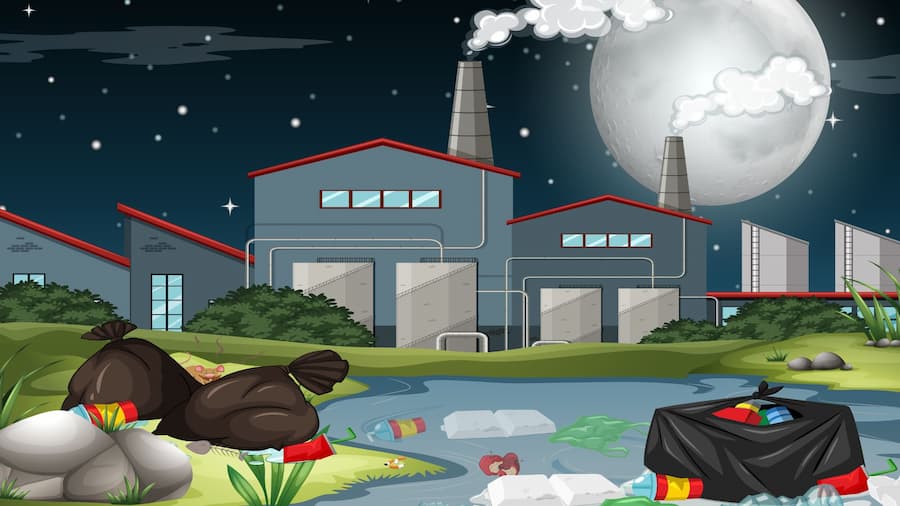How Humans Are Killing the Environment Through Daily Habits?

A human being may supposedly develop a habit in just three weeks. The environment is being progressively destroyed by regular human practices, which is a serious cause for concern. It’s fascinating that apathy is largely to blame. While many may initially appear harmless, further examination reveals just how seriously some of them may impact the environment. Every one of our behaviours—from driving to tooth brushing to food waste—affects the environment in a specific way. To lessen our carbon footprint on the earth, everything we have to do is make a few minor lifestyle adjustments and possibly get in touch with skip hire Stockport.
1. Travelling:
One of the most popular ways individuals choose to carry out their everyday duties is through driving. Nevertheless, the environment bears the price for the cost of fumes generated by vehicles when they burn petrol since there are as many as 273.6 million automobiles in the United States alone. The impact on the surroundings is enormous since so many people throughout the world possess automobiles. To lessen their carbon impact, people ought to opt for carpooling or be more receptive to using public transport. This as a daily habits works as killing the environment.
2. Improper Battery And Ink Disposal:
Due to incorrect disposal, residues of mercury along with other dangerous compounds found in household batteries build up and leach into ecosystems all over the globe, potentially harming animals and marine life. Contrarily, whenever improperly disposed of, ink cartridges have a greater damaging impact on the environment. Millions of cartridges are disposed of in landfills annually, poisoning the soil while also harming the environment. These daily habits also can build up within animals (a process known as biomagnification), which means that as they transit through the animal life cycle and food webs, they endanger an increasing number of species.
3. Excessive Plastic Usage:
The majority of the items sold in stores are presented in plastic. Additionally, the majority of carrying bags that are available at the checkout with the cashier is made of plastic. According to statistics, food packaging makes up close to 70% of all home waste and daily habits which finally finds its way to landfills. The issue lies in the fact that because plastics cannot organically disintegrate and have a life cycle which may endure for millennia, they pose a significant environmental threat. This implies that as landfills fill up with plastic waste, breakdown does not occur, bringing little benefit to the planet.
4. Wasting Food:
Many individuals believe that leaving a bit of food on a plate is perfectly normal as part of their daily habits. Nevertheless, it is not an ideal choice to throw away extra food because it consumes a lot of resources and produces a lot of pollutants to harvest, transport, as well as prepare food. In addition, improper waste management may result in a rise in biological material in the waterway that may encourage the formation of algae.
5. Use of Paper:
Every day, thousands of various forms of paper are manufactured and utilised, including newspapers, toilet paper, checks, records, and receipts, to name just a few. It’s crucial to keep in mind that trees are the sole supply of paper. The global environment is changing as a result of the growing demand for papers due to a desire for cleanliness and unsustainable daily habits. As a result, trees have been chopped down to satisfy this requirement.
6. Use Electricity to Heat Water:
It is quite inefficient to boil water for your morning cup of coffee or to use in the kitchen or shower as part of their daily habits. When compared to natural gas, electricity is one of the more costly methods to boil water due to the quantity of energy required. The high energy requirements cause issues with the actual manufacturing of the goods. Using the boiler or coffee maker increases the power load. Which has a significant negative impact on the environment because much electricity is produced utilising coal and diesel engines.
7. Facial Cleansing:
Scientists have identified the widespread use of plastic exfoliating micro-beads in face cleansers. As an important environmental problem. Due to their small size, the beads do not undergo filtering during sewage treatment. Whenever they are released into bodies of water, fish along with other marine animals absorb them. Endangering their well-being and possibly poisoning their organs or harming their gills. Since the beads are designed to scrape when used by people. They also damage the animal’s interior organs. Aquatic animals are harmed by the bead’s abrasive quality.
8. Consumption of Meat:

One of the main gases that are responsible for the greenhouse phenomenon. Which raises the temperature of the lower atmosphere, is methane. Cattle kept by farmers are the biggest sources of methane gas; one cow is thought to generate between 250 and 500 litres each day. The use of compounds, deforestation, shipping, waste disposal. And various other aspects of animal husbandry are further contributors to greenhouse gases. Since there is a big demand for meat, farmers must retain an increasing number of animals, this raises greenhouse gas emissions. The ecology is harmed greatly by this vicious circle. Increasing the usage of alternate protein sources, such as beans, is one way to address the issue.
Final Words – Killing the Environment Through Daily Habits:
You may reduce your ecological impact and contribute to greater responsibility for the environment by being conscious of daily habits like these.







